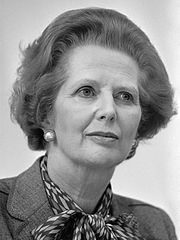
Michael Ray Dibdin Heseltine, Baron Heseltine, is a British politician. Having begun his career as a property developer, he became one of the founders of the publishing house Haymarket. Heseltine served as a Conservative Member of Parliament from 1966 to 2001. He was a prominent figure in the governments of Margaret Thatcher and John Major, and served as Deputy Prime Minister and First Secretary of State under Major.

The Pro-Euro Conservative Party was a minor, Pro-European British political party, announced by John Stevens and Brendan Donnelly in February 1999, formed to contest the 1999 European Parliament election. The founders were Members of the European Parliament who had resigned from the UK Conservative Party in protest at its anti-euro stance. Their reported aim was to replace Eurosceptic William Hague as Conservative leader with Europhile Kenneth Clarke. Stevens later said that they had intended to push Ken Clarke, Michael Heseltine, Chris Patten and other pro-Europeans in the Conservative Party into "an SDP-style breakaway, in combination with the Liberal Democrats". The Pro-Euro Conservative Party disbanded in 2001.
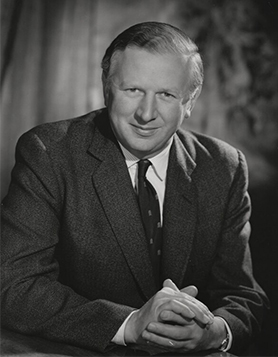
James Michael Leathes Prior, Baron Prior, was a British Conservative Party politician. A Member of Parliament from 1959 to 1987, he represented the Suffolk constituency of Lowestoft until 1983 and then the renamed constituency of Waveney from 1983 to 1987, when he stood down from the House of Commons and was made a life peer. He served in two Conservative cabinets, and outside parliament was Chairman of the Arab British Chamber of Commerce from 1996 to 2004.

The Maastricht Rebels were British Members of Parliament (MPs) belonging to the then governing Conservative Party who refused to support the government of Prime Minister John Major in a series of votes in the House of Commons on the issue of the implementation of the Maastricht Treaty in British law.

The Tory Reform Group (TRG) is a pressure group associated with the British Conservative Party that works to promote "modern, progressive Conservatism... economic efficiency and social justice" and "a Conservatism that supports equality, diversity and civil liberties", values sometimes associated with Harold Macmillan's "Middle Way" or what the groups consider a moderate one-nation conservatism. Senior figures include Michael Heseltine, Douglas Hurd, Kenneth Clarke, and Chris Patten.

William John Biffen, Baron Biffen,, was a British Conservative Party politician. He was a Member of Parliament from 1961 to 1997, and served in Margaret Thatcher's cabinet; he then served in the House of Lords.
The Federation of Conservative Students (FCS) was the student organisation of the British Conservative Party from the late 1940s to 1986. It was created to act as a bridge between the student movement and the Conservative Party. It produced several magazines, and had regular Assembly meetings in which motions would be voted on. It had supported some controversial actions, such as the legalisation of various drugs, and the privatisation of the Trident nuclear missiles. There was continual tension between central party, which funded the organisation, and the Federation – which often used the funds on exploring unconventional policies.
The Young Conservatives (YC) is the youth wing of the Conservative Party in the United Kingdom for members aged 25 and under. The organisation shares the same values and policies as its parent political party with branches being an integrated part of local associations. College and university branches are not included, but run independently.

Ian Hedworth John Little Gilmour, Baron Gilmour of Craigmillar, was a Conservative Party politician in the United Kingdom. He was styled Sir Ian Gilmour, 3rd Baronet from 1977, having succeeded to his father's baronetcy, until he became a life peer in 1992. He was Secretary of State for Defence in 1974, in the government of Edward Heath. In the government of Margaret Thatcher, he was Lord Privy Seal from 1979 to 1981.

Sir Anthony John Charles Meyer, 3rd Baronet was a British soldier, diplomat, and Conservative and later Liberal Democrat politician, best known for standing against Margaret Thatcher for the party leadership in 1989. In spite of his staunch conservative views on economic policy, his passionate support of increased British integration into the European Union led to him becoming increasingly marginalised in Thatcher's Conservative Party.

The Bow Group is a UK-based think tank promoting conservative opinion. Founded in 1951, it is the oldest group of its kind, counting many senior Conservative Party MPs and peers among its members. It represents a forum for political debate with its varied programme of events and official journal.
The 1990 Conservative Party leadership election was called on 14 November 1990 following the decision of Michael Heseltine, former defence and environment secretary, to challenge Margaret Thatcher, the incumbent Prime Minister of the United Kingdom, for leadership of the Conservative Party.
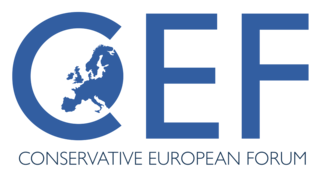
The Conservative European Forum (CEF) was founded in 1969 to promote the UK's entry into the European Economic Community. The organisation is committed to a positive and constructive approach to the UK's relationships with the democracies of Europe, including the European Union.
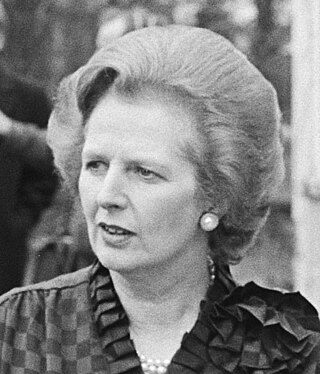
Margaret Thatcher was Prime Minister of the United Kingdom from 4 May 1979 to 28 November 1990, during which time she led a Conservative majority government. She was the first woman to hold that office. During her premiership, Thatcher moved to liberalise the British economy through deregulation, privatisation, and the promotion of entrepreneurialism.

Margaret Thatcher was Prime Minister of the United Kingdom from 4 May 1979 to 28 November 1990, during which time she led a Conservative majority government. She was the first woman to hold that office. During her premiership, Thatcher moved to liberalise the British economy through deregulation, privatisation, and the promotion of entrepreneurialism.
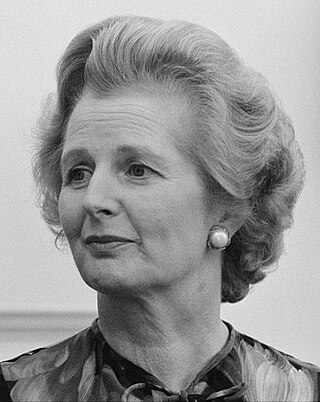
Margaret Thatcher became the first female Leader of the Conservative Party and Leader of the Opposition after winning the 1975 leadership election, the first Conservative leadership election where the post was not vacant. A rule change to enable the election was largely prompted by dissatisfaction with the incumbent leader, Edward Heath, who had lost three of four general elections as leader, including two in 1974. After announcing her first Shadow Cabinet in February 1975, she reshuffled it twice: in January and November 1976. Minor subsequent changes were necessary to respond to various circumstances. Thatcher's Shadow Cabinet ceased to exist upon her becoming Prime Minister following the 1979 general election.

The Gang of 25 or the Group of 25 was a cohort of British Conservative Party backbench members of Parliament (MPs) that threatened to vote against prime minister Margaret Thatcher's 1981 Autumn Statement. The statement contained monetarist measures to control inflation. Similar measures introduced since 1979 had reduced inflation but caused job losses in the manufacturing sector.
